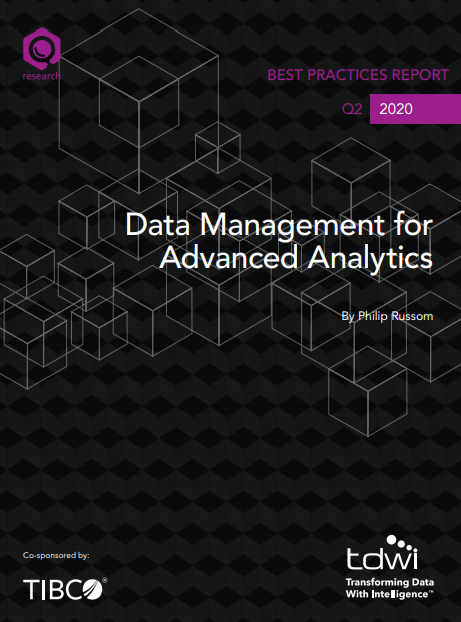Editor’s Note: In this blog, we curate relevant and remarkable content for data and analytics community. Here’s an interesting piece written by Tina Tang.
I just marked my two-year anniversary working on MIT’s Chief Data Officer executive committee, helping build their CDO program. I have learned many life lessons from this versatile yet expert group of executives. Many times I’ve felt like “Grasshopper” from the 1970s TV show Kung Fu (and the 1980s movie The Karate Kid, for those of us who were not yet around in the 70s) compared to the black-belt level mastery of the many and varied disciplines CDOs have racked up.
I’d like to share three “sutras” I’ve learned from these masters:
1. Prepare a foundation as solid as a boulder in a stream.
In traditional industries like consumer-packaged goods, manufacturing, transportation, and healthcare, data is often viewed as a byproduct. The rise of technology companies such as Uber, Google, Facebook, Twitter, Amazon, and LinkedIn reveal to the establishment what the possibilities are if data IS the business.
Without an established data culture, you will struggle to maintain a reliable and accurate data foundation. Your data and information must be fit for purpose before the organization can tackle the big, sexy initiatives like undergoing digital transformation, joining the networked economy, or even deploying executive dashboards to visualize sales KPIs. Much of this foundational work is developing policies and rules, implementing the technology to automate as much as possible, and good ol’ politics.
SAP’s head of enterprise data management and defacto CDO Maria Villar emphasizes: Don’t stop there! A CDO knows that this phase offers its own benefits and can be used as leveraged to further the corporate strategy. Cultivate the art of believability by capturing, measuring, and publishing business metrics and benefits experienced such as productivity gains, increased sales of products and services, and improved service. And as Suzanne Frey, director of security and policy for Google Apps emphasized, cybersecurity should not be afterthought, but in the DNA. Techniques like threat modeling help developers build in features that can thwart attacks.
2. Be flexible like bamboo.
Change can be hard. Adopting new processes, using new or unfamiliar systems and even new reporting structures often are met with some resistance if the transition is not managed well. Change management techniques can go a long way to mitigate these potential obstacles.
Dr. Nicholas Marko, who is both neurosurgeon and CDO for Geisinger Health Systems in Pennsylvania, shared this aspirational analogy for how change could be experienced: Smartphones have become ubiquitous, personal, and essential to our productivity. Many of us use them daily, put them on our nightstands, and feel we could not live without them. So how is it that whenever there is a new smartphone hardware upgrade available, people stand in line outside overnight to pay for this disruption in their lives?
Continue reading…
________________
This article entitled “The Judo Of The CDO: The 3 Sutras Of The Modern Information Blackbelt” was originally posted on Digitalist Magazine. To read full story, click here.
By Tina Tang
Tina serves on the MIT Chief Data Officer program’s executive committee to grow the university’s Chief Data Officer community, a group of CDOs that share, learn, explore, and support research, best practices, and new technologies. Tina Tang is a senior director of SAP’s Products and Innovations division. She is the lead for the company’s chief data officer, master data management, and data governance programs. With over 15 years’ experience in enterprise software and 20 years in high technology, she has held diverse roles including data governance, product marketing, community, consulting methodology, documentation, inside sales, digital marketing, and PR. She is also member of the board of executives for Mina’s List, a nonprofit based in Cambridge, Massachusetts. Former positions include roles at Siperian and Oracle Corporation. Tina is an alumnus of the University of Texas at Austin.







.jpg)

